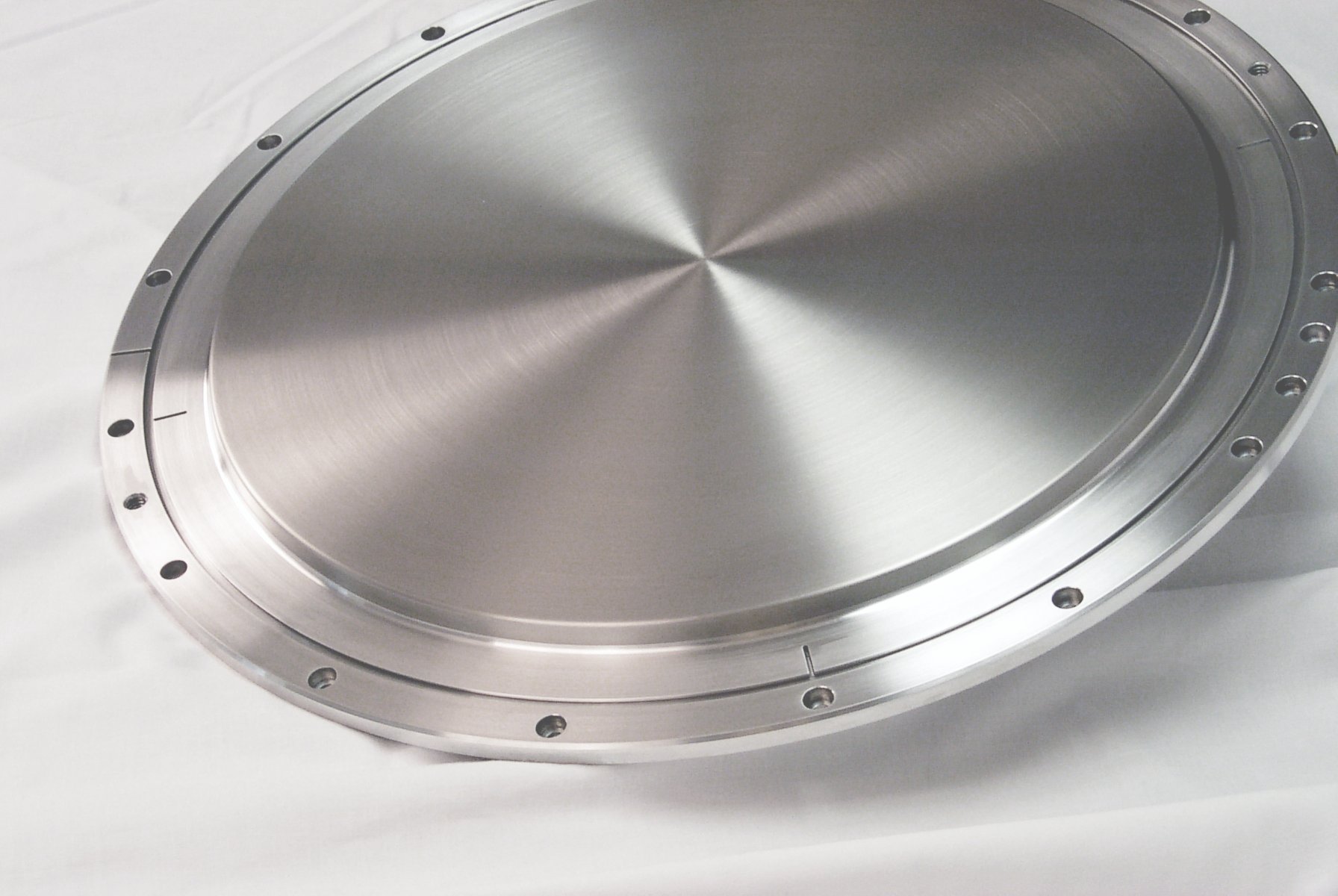Certain metals are critical in the production of PVD coatings. As a global supplier of semiconductor and specialty optics PVD materials, Materion focuses on their use as electrical contacts and as adhesion, barrier and working layers in reflectors for IR laser mirrors, LEDs and Low-e Glass. It is important to review the fundamentals of these metals to illustrate the applications driving their use. Following, we summarize characteristics of nickel (Ni), nickel-chrome (NiCr), nickel-vanadium (NiV), gold (Au), silver (Ag) and silver alloys.
This metal is generally used as an under layer plating in electrical connector applications for other contact metals such as gold, tin or palladium. It simultaneously acts as a barrier layer to prevent diffusion of the base metal to the surface. In the case of tin-coated contacts, nickel prevents the formation of copper-tin intermetallics while passivating pores and bare edges, thus reducing the potential of pore and creep corrosion.
In Optics, nickel is often sputtered but can also be e-beam evaporated and controlled with great precision by optical monitors for partially transmissive coatings. Nickel and its alloys play a vital dual role as both adhesion promoters and diffusion barriers. This is best illustrated in CO2 laser optics where the gold on a copper mirror is subjected to high fluences over extended periods for proper function. Nickel-chrome (NiCr) is also used as an adhesion layer in optics as well as a thin film resistor layer in microelectronics. Nickel and nickel-vanadium (NiV) are key barrier layers. They are able to protect semiconductors when the adhesion and conductivity properties are customized to the needs of the device.

This metal makes a soft, inert, low-friction, high conductivity coating. As an electrical contact, it has exceptional corrosion resistance and excellent reflection into the LWIR. However, gold wears easily, does not solder well, and requires an adhesion promoter and/or barrier layer to properly function. As a contact, it is often used in low current or high reliability applications where it places a heavy emphasis on cooling or multilayer metal adhesion layers. In these cases, especially for solderable contacts or mixed plating/PVD approaches, nickel, titanium and other mixed-use barrier/adhesion stacks are employed.
For specialty optics, gold is deposited by both PVD and plating operations. Depending on the application, gold can be hardened by metallurgical, chemical or specialty processes. Note that electro-plated gold is harder than evaporated gold. Gold can also be enhanced and/or protected by single, sandwich and/or specialty multi-layers. This versatility makes gold a good choice for monochromatic and polychromatic applications ranging from the Mid-to-Long Wave IR. Bare gold coatings on copper provide the very highest reflection. The concern is that there are limited cleaning techniques for gold coatings due to the likelihood of scratches. Because of that, most opt for coatings with protective specialty dielectric stacks. This basically sacrifices some reflectance, or complicates polarization states for durability; however, more elaborate optical designs are able to recover and control the losses and prolong the life and function of the optic.

Silver provides the highest conductivity of any metal. As an electrical contact, pure silver is used in high current applications where minor arcing may occur. While it does not readily oxidize, silver can tarnish easily in the presence of chlorine, sulfur, and acidic environments. Silver composites and silver metal oxides are more resistant to arc erosion than plain silver. Because of that, they are used in higher voltage switches where there is potential for severe damage from arcing.
For optical media, LED backside reflectors and more durable contacts, there is an increasing deployment of palladium (Pd) and platinum (Pt) alloys to make the silver more resistant to sulfur, humidity and temperature changes. For use in optics, silver thin films (similar to gold) can be protected with a dielectric overcoat or stack. Their use can cause the high reflector to be increasingly sensitive to wavelength, angle of incidence and polarization, thus placing a greater burden on the thin film design and process.
In large area coating, silver is a critical component in high performance metal oxide layers. These layers produce increasingly sophisticated low emissivity (low –e), low overall heat flow (low U-factor) windows that are the basis for energy efficient buildings. For long-term stability, the silver layer needs to be passivated by sandwiching it between specific compounds such as SiNx (silicon nitride) or reactively deposited select metal oxides. Increasingly complex designs for windows allow for high visible light transmission but with superior IR reflection and customizable/pleasing exterior colors. For residential applications, they can be used in conjunction with impact-proof designs for hurricane resistance. Their superior energy savings is achieved by rejecting warming IR photons.
As a global innovator of metals applications, Materion is dedicated to providing the right materials for the job. Customer requirements are driving the need for ever more sophisticated nickel, nickel alloy, gold, silver and silver alloy evaporation and sputtering materials to meet the demands of the semiconductor, precision optics, high performance solar selective and low emissivity industries.
Materion can fulfill any specific requirements you have and partner with you for the optimal solution.
In markets where performance dictates success, our gold, silver and nickel products are proven contributors.